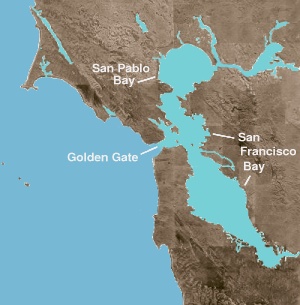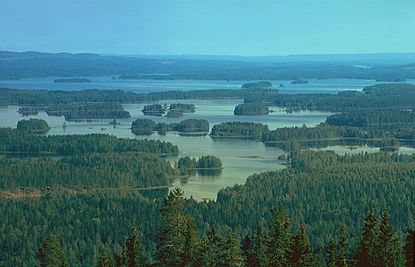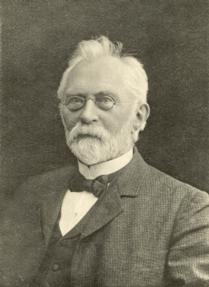
Back بوابة:علم البيئة Arabic Portal:Ecologia Catalan Portal:Økologien Danish Portal:Ecología Spanish درگاه:بومشناسی Persian Portail:Écologie French 포털:생태학 Korean Портал:Екологија Macedonian Portal:Ecologia Portuguese Portal:Ecologie Romanian
| |
|
|
Ecology
|
|
Ecology (from Ancient Greek οἶκος (oîkos) 'house', and -λογία (-logía) 'study of') is the natural science of the relationships among living organisms, including humans, and their physical environment. Ecology considers organisms at the individual, population, community, ecosystem, and biosphere levels. Ecology overlaps with the closely related sciences of biogeography, evolutionary biology, genetics, ethology, and natural history. Ecology is a branch of biology, and is the study of abundance, biomass, and distribution of organisms in the context of the environment. It encompasses life processes, interactions, and adaptations; movement of materials and energy through living communities; successional development of ecosystems; cooperation, competition, and predation within and between species; and patterns of biodiversity and its effect on ecosystem processes. Ecology has practical applications in conservation biology, wetland management, natural resource management (agroecology, agriculture, forestry, agroforestry, fisheries, mining, tourism), urban planning (urban ecology), community health, economics, basic and applied science, and human social interaction (human ecology). The word ecology (German: Ökologie) was coined in 1866 by the German scientist Ernst Haeckel. The science of ecology as we know it today began with a group of American botanists in the 1890s. Evolutionary concepts relating to adaptation and natural selection are cornerstones of modern ecological theory. Ecosystems are dynamically interacting systems of organisms, the communities they make up, and the non-living (abiotic) components of their environment. Ecosystem processes, such as primary production, nutrient cycling, and niche construction, regulate the flux of energy and matter through an environment. Ecosystems have biophysical feedback mechanisms that moderate processes acting on living (biotic) and abiotic components of the planet. Ecosystems sustain life-supporting functions and provide ecosystem services like biomass production (food, fuel, fiber, and medicine), the regulation of climate, global biogeochemical cycles, water filtration, soil formation, erosion control, flood protection, and many other natural features of scientific, historical, economic, or intrinsic value. (Full article...) Selected article - The San Francisco Estuary together with the Sacramento–San Joaquin River Delta represents a highly altered ecosystem. The region has been heavily re-engineered to accommodate the needs of water delivery, shipping, agriculture, and most recently, suburban development. These needs have wrought direct changes in the movement of water and the nature of the landscape, and indirect changes from the introduction of non-native species. New species have altered the architecture of the food web as surely as levees have altered the landscape of islands and channels that form the complex system known as the Delta. This article deals particularly with the ecology of the low salinity zone (LSZ) of the estuary. Reconstructing a historic food web for the LSZ is difficult for a number of reasons. First, there is no clear record of the species that historically have occupied the estuary. Second, the San Francisco Estuary and Delta have been in geologic and hydrologic transition for most of their 10,000 year history, and so describing the "natural" condition of the estuary is much like "hitting a moving target". Climate change, hydrologic engineering, shifting water needs, and newly introduced species will continue to alter the food web configuration of the estuary. This model provides a snapshot of the current state, with notes about recent changes or species introductions that have altered the configuration of the food web. Understanding the dynamics of the current food web may prove useful for restoration efforts to improve the functioning and species diversity of the estuary. (Full article...)Selected image - Credit: Paul Lenz General imagesThe following are images from various ecology-related articles on Wikipedia.
Related WikiProjectsThings you can do
Entries here consist of Good and Featured articles, which meet a core set of high editorial standards.
Sustainability is a social goal for people to co-exist on Earth over a long time. Definitions of this term are disputed and have varied with literature, context, and time. Sustainability usually has three dimensions (or pillars): environmental, economic, and social. Many definitions emphasize the environmental dimension. This can include addressing key environmental problems, including climate change and biodiversity loss. The idea of sustainability can guide decisions at the global, national, and individual levels. A related concept is that of sustainable development, and the terms are often used to mean the same thing. UNESCO distinguishes the two like this: "Sustainability is often thought of as a long-term goal (i.e. a more sustainable world), while sustainable development refers to the many processes and pathways to achieve it." Details around the economic dimension of sustainability are controversial. Scholars have discussed this under the concept of weak and strong sustainability. For example, there will always be tension between the ideas of "welfare and prosperity for all" and environmental conservation, so trade-offs are necessary. It would be desirable to find ways that separate economic growth from harming the environment. This means using fewer resources per unit of output even while growing the economy. This reduces the environmental impact of economic growth, such as pollution. Doing this is difficult. Some experts say there is no evidence that it is happening at the required scale. (Full article...)Selected biography - Johannes Eugenius Bülow Warming (3 November 1841 – 2 April 1924), known as Eugen Warming, was a Danish botanist and a main founding figure of the scientific discipline of ecology. Warming wrote the first textbook (1895) on plant ecology, taught the first university course in ecology and gave the concept its meaning and content. Scholar R. J. Goodland wrote in 1975: “If one individual can be singled out to be honoured as the founder of ecology, Warming should gain precedence”. Warming wrote a number of textbooks on botany, plant geography and ecology, which were translated to several languages and were immensely influential at their time and later. Most important were Plantesamfund and Haandbog i den systematiske Botanik. (Full article...)Did you know (auto-generated)
Selected quote -
Ecology news
Additional News Highlights
Selected publication -Ecology Letters is a peer-reviewed scientific journal published by Wiley-Blackwell and the Centre National de la Recherche Scientifique. Marcel Holyoak (University of California, Davis) took over as editor in chief from Michael Hochberg in 2008. It is published monthly in print and online. (Full article...) Related portalsMore did you know -Related articlesAssociated WikimediaThe following Wikimedia Foundation sister projects provide more on this subject:
Web resourcesPreview warning: Page using Template:Div col with unknown parameter "1 = 2"; use colwidth= to specify column size
Discover Wikipedia using portals |
© MMXXIII Rich X Search. We shall prevail. All rights reserved. Rich X Search














































